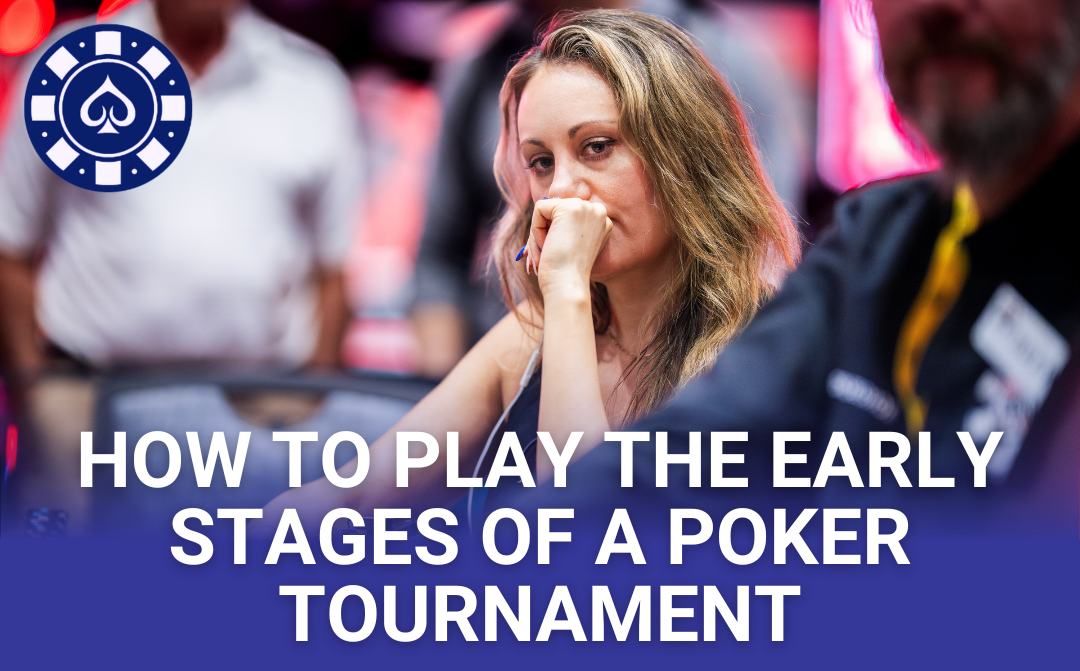Are you thinking about beginning to play in poker tournaments? Is playing (and maybe winning!) WSOP or another poker circuit your dream? Or maybe you’re a cash player looking to take your poker game to the next level. Well, as any good poker player knows, tournament play is a whole new beast.
Let’s talk about one of the most important parts of any poker tournament: the early stages. This phase can set the tone for your entire tournament journey, so getting it right is key!
Patience: In the early stages of a tournament, when you’re very deep stacked, it’s all about playing conservatively. The blinds and antes are small, so there isn’t much money to fight for in each pot. This means your focus should be on preserving your stack and not making risky moves. Patience is your best friend here.
Chip Value: As the tournament progresses and more players get knocked out, the value of your chips (chip EV) increases. Your opening ranges in the early stages will be much tighter compared to the later stages.Just remember: the chips you win in the early stages aren’t as valuable as the chips you’ll win later.
This doesn’t mean you shouldn’t fight for pots—there’s always dead money in the middle with the blinds and antes. However, stacks are so deep early on that you don’t want to get involved in huge all-in situations – unless you have a strong hand.
Hand Ranges and Stack Sizes: For players with a background in cash games, your hand ranges in the pre-ante stages of a tournament will be similar to cash game opening ranges. With deep stacks of 100 or more big blinds, hands like K-9s should be folded UTG. Compare this to a later stage in the tournament with 40 big blinds and antes in play, where you might consider opening with that same hand.
Observation: The early stages are perfect for observing and making reads on your opponents. Take your time, go slowly, and study their tendencies. You’re going to be at the table with these players for a while, so it’s crucial to learn how they play. Watch their betting patterns, their body language, and any tells they might give away.
Pot Control: Pot control is especially important in the early stages. Prioritize realizing your equity rather than overstretching to maximize it. This means not taking high-variance lines and often checking your drawing hands instead of pushing for an all-in situation. With top pair/overpair hands, it’s better to pot control rather than going for maximum value early on.
Narrow Ranges: Early on, ranges are narrower, so avoid making too many light hero calls. Bluffing should also be kept to a minimum. Don’t pull out the triple barrel bluff, especially against unfamiliar players. Wait until you have some solid reads on the players at your table.
Softer Fields: The early stages often have a softer field. Ever hear the phrase, “the cream always rises to the top”? This is true in poker tournaments. There are always more fish at the beginning. As the tournament progresses, the field gets tougher. Use this time to build your stack gradually and avoid unnecessary risks.
Pro Tip: Use this time to chill, not get too out of line, and position yourself for success entering the middle stages.






